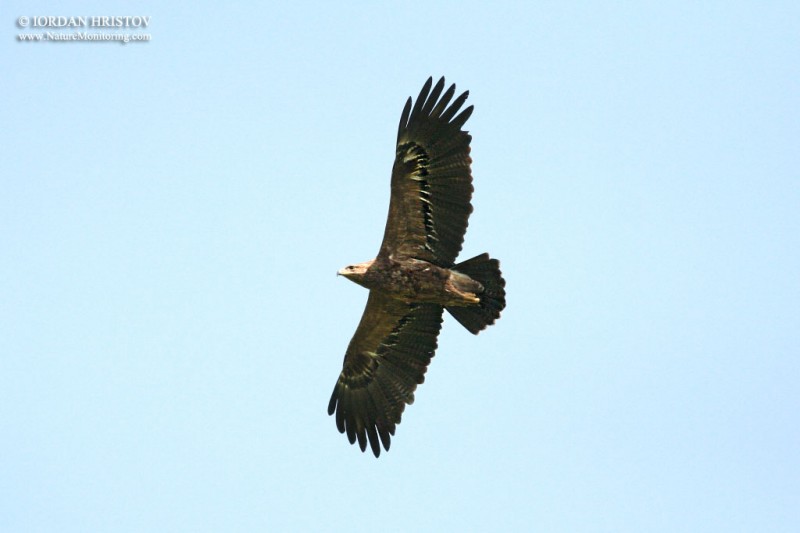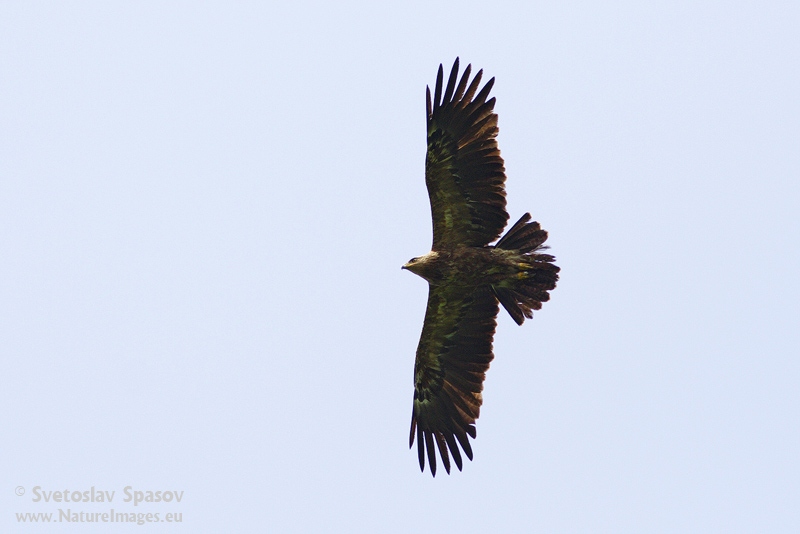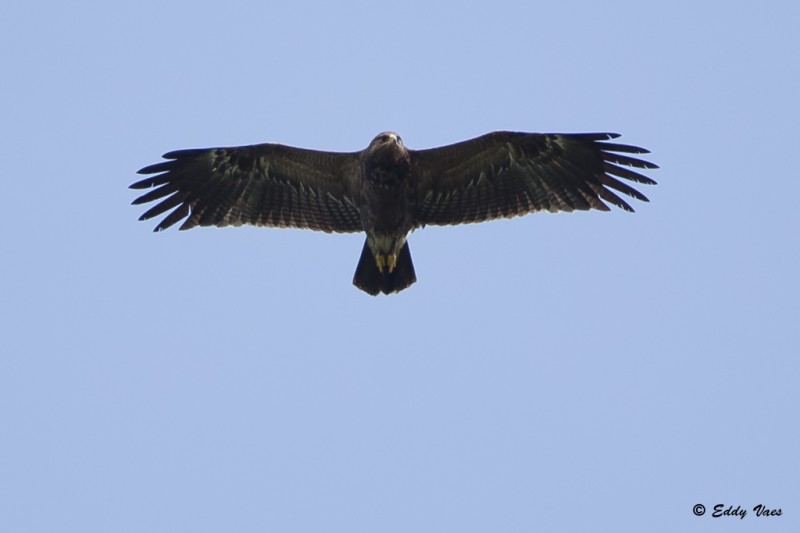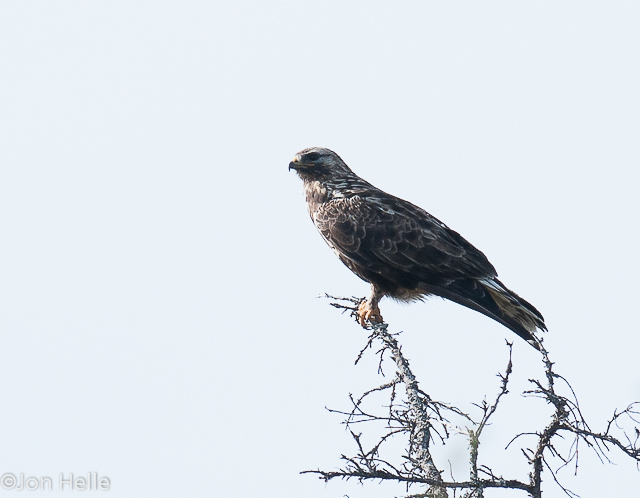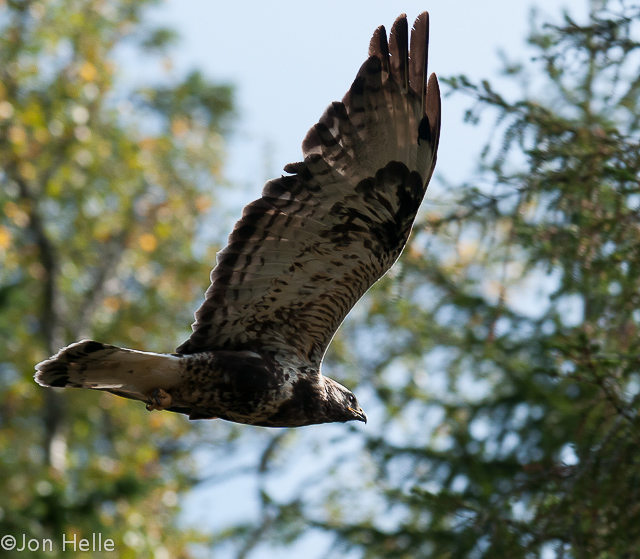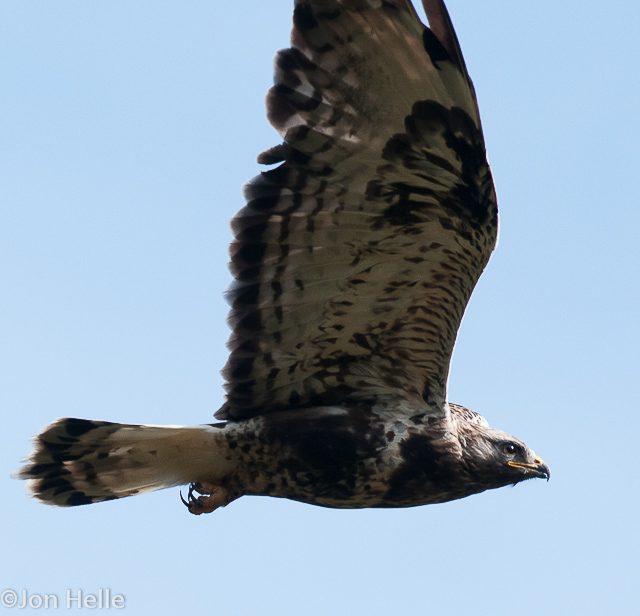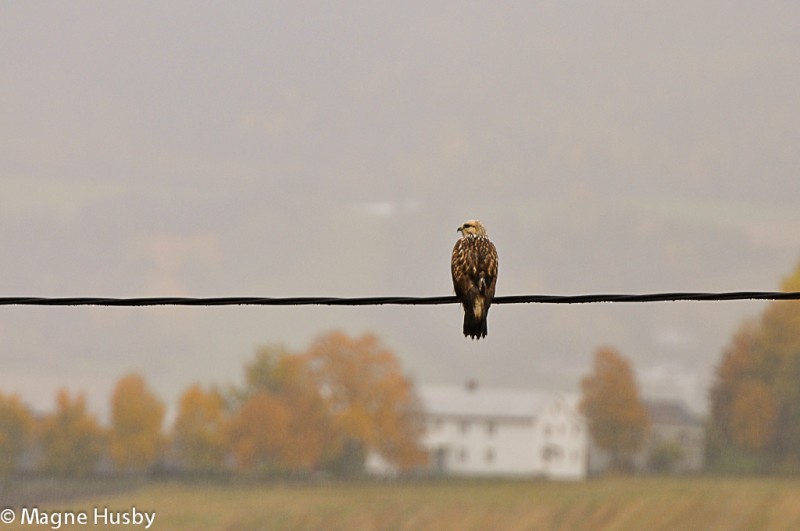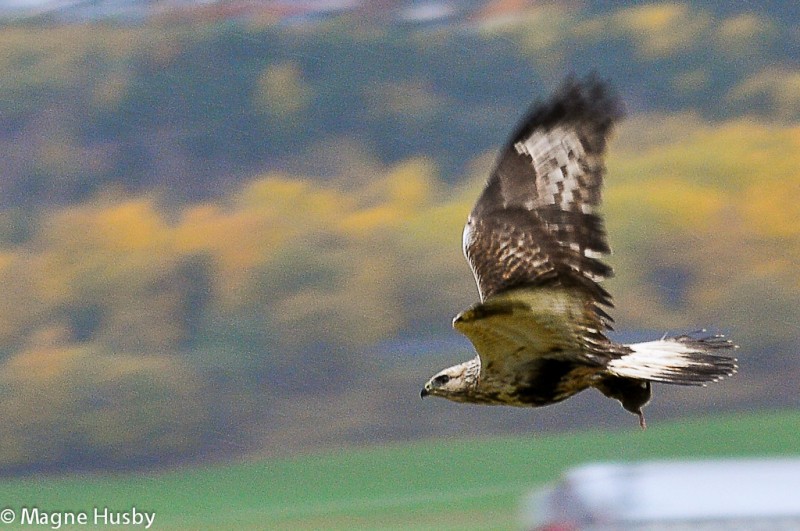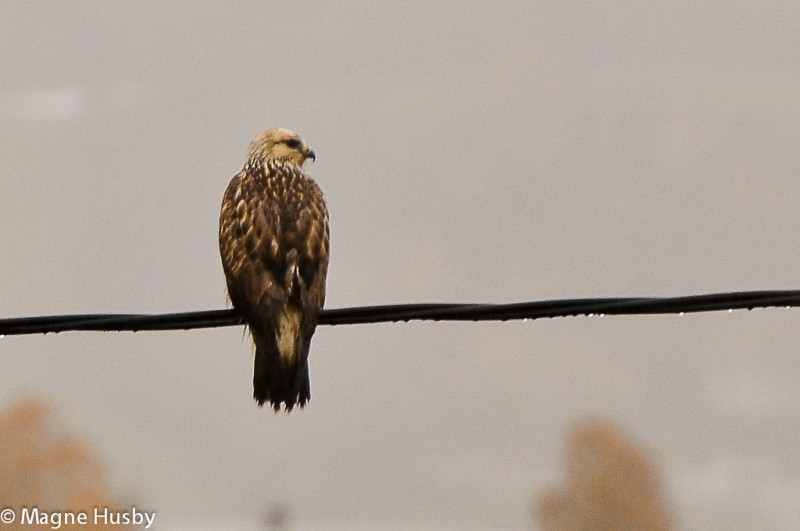Lesser Spotted Eagle (Clanga pomarina)
Rough-legged Buzzard (Buteo lagopus)
Small eagle with evenly broad wings and relatively short tail. Easily confused with Greater Spotted Eagle (C. clanga). Flight-feathers darker than the pale brown coverts, both on upper- and underwing. Head and body distinctly paler than flight feathers. Conspicuous pale patch at base of inner primaries on upperwing (diffuse only in C. clanga). Double "commas" on underwing, formed by pale base of primaries and primary-coverts (one "comma" in C. clanga). Wings more narrow than C. clanga, which makes the tail look slightly longer. U-shaped white patch at base of tail. Immature birds with white tipped greater and median coverts, forming two narrow wing-bands. Wings "fingered", but 7th finger shorter than in C. clanga (but varies with age). Sours and glides with wings held horizontally, but with characteristic drooping hand (similar to C. clanga).
Sound:Vocal at breeding ground, and when courting. Short, barking, high-pitched whistles, not unlike a small dog. Slightly higher pitched than C. clanga and with a purer tone, but very similar.
Call:
Distribution:
Wikipedia: map (se also Xeno-canto below)
Ecology:Birdlife ecology
Links:
Observation.org Latest observations
Image search Flickr NB! May give other species
CCVariable plumage, but not as varied as Buzzard. Prominent black carpal patches and broad black terminal band on tail in all plumages. Upperparts dark and speckled, underparts pale. Head is paler than back, and base of bill paler still. Conspicuous white base of tail, and upperside of tail contrasts with the dark back. Female with big black belly patch, and one broad terminal band on tail. In males the belly patch this is less prominent, and the tail has 1-2 narrow bands in addition to the terminal one. Only other raptor with white tail and broad terminal band in the area is young Golden Eagles. These can be identified by size, and by showing 6 fingers, not 5 as in Buteo (Buzzards). Soars with slightly more raised wings than Buzzard.
Sound:Most typical call a wailing, mewing "peeoooo". Quite similar to Buzzard, but the pitch falls more evenly throughout the whole call.
Alarm call:
Distribution:
Wikipedia: map (se also Xeno-canto below)
Ecology:Birdlife ecology
Links:
Observation.org Latest observations
Image search Flickr NB! May give other species
CC
 English
English Albanian
Albanian
 Armenian
Armenian
 Bulgarian
Bulgarian
 Catalan
Catalan
 Croatian
Croatian
 Czech
Czech
 Danish
Danish
 Dutch
Dutch
 Finnish
Finnish
 French
French
 Georgian
Georgian
 German
German
 Greek
Greek
 Hungarian
Hungarian
 Italian
Italian
 Latvian
Latvian
 Lithuanian
Lithuanian
 Macedonian
Macedonian
 Norwegian
Norwegian
 Polish
Polish
 Portuguese
Portuguese
 Romanian
Romanian
 Russian
Russian
 Sami : Lule sami
Sami : Lule sami
 Sami : North sami
Sami : North sami
 Sami : South sami
Sami : South sami
 Scientific names
Scientific names
 Serbian
Serbian
 Spanish
Spanish
 Swedish
Swedish
 Ukrainian
Ukrainian

